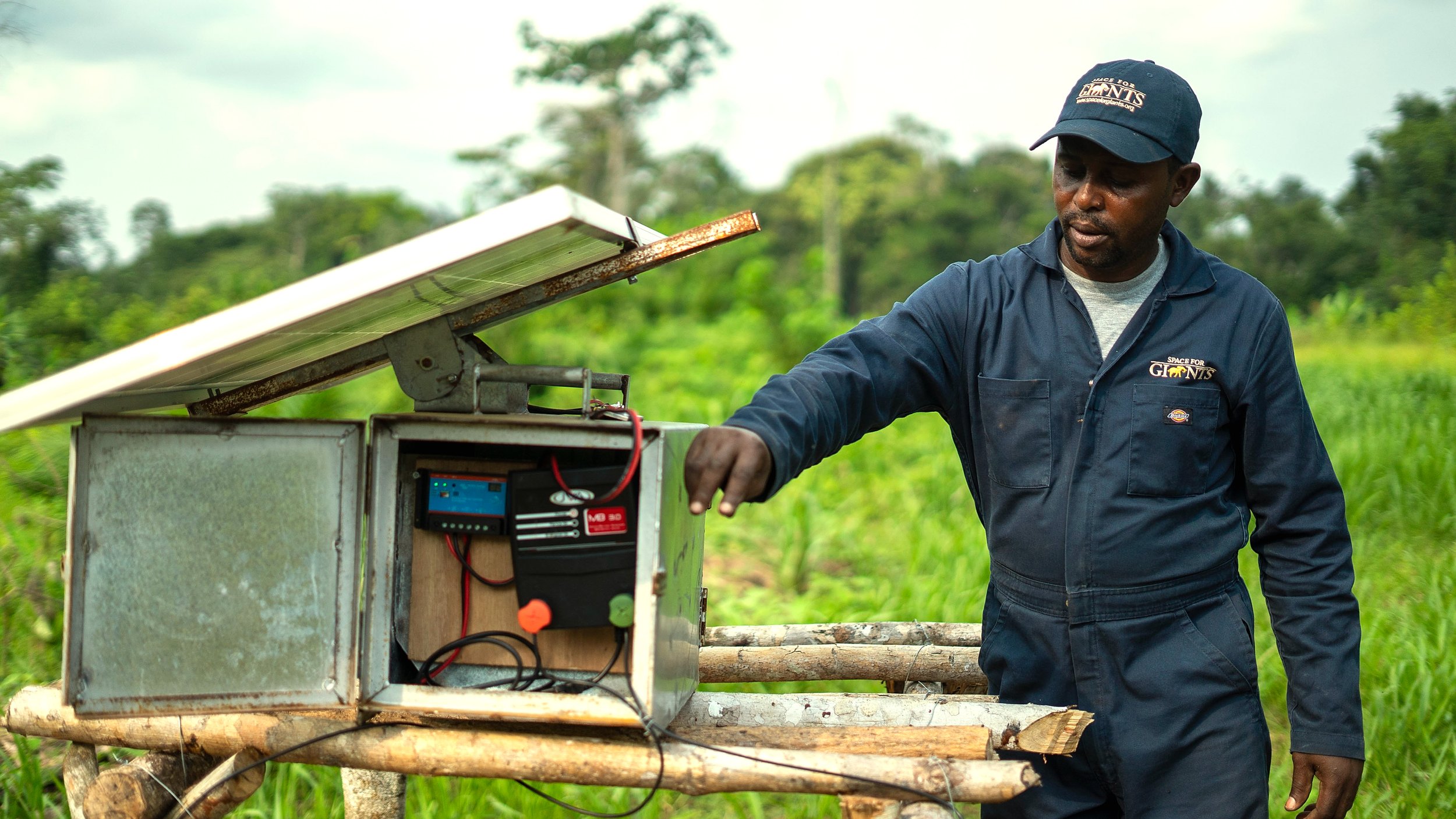
The Electric Fences
Last stronghold of Africa's critically endangered forest elephants, with a high rate of subsistence farmers, at high risk of food insecurity.
Gabonese agriculture is characterized by traditional shifting practices, managing several small fields among their known land tenure. The mobile electric fence proves to be a fitting response, providing an effective and dissuasive electric shock that acts as both a physical and psychological barrier for elephants. This method significantly minimizes crop damage while ensuring the well-being of the elephants, creating a more peaceful coexistence between humans and wildlife.
The success of the innovative mobile-electric fences continues to safeguard Gabon's unique biodiversity and fosters sustainable practices for a safer and brighter environmental future.
The Gabonese population, estimated at 2.23 million people, continues to experience rapid rural depopulation, primarily driven by the youth’s pursuit of employment, with an overall unemployment rate of 36%. This situation results in a demographic imbalance in rural areas, where older people increasingly populate. This demographic shift and a lack of formal employment opportunities have significantly increased reliance on subsistence agriculture to meet economic and nutritional needs.
Gabon’s rural population is estimated at 250,000, spread across approximately 36,000 households in nine provinces. The average age of primary beneficiaries of the Space for Giants Mobile Electric Fence program is 57.
According to World Bank data from 2020, approximately 65% of rural households depend on agriculture, and alarmingly, 58% of households dependent on the agricultural sector in Gabon live in poverty. Crop raiding by elephants poses an increasing threat to food security and jeopardizes the livelihoods of local Gabonese people.
In Gabon, agriculture is predominantly practiced by women. Men are involved in harvesting and assist with other agricultural tasks. In 2024, 54.5% of female farmers benefited from mobile electric fences. While 13,543 people currently benefit from electric fences, more than 143,000 individuals remain unsecured, exposing both elephants and rural communities to potentially fatal incidents if further fence deployments are not undertaken.
In certain departments of the Ogooué-Ivindo province, villages had been deserted by populations due to elephants plundering plantations. With the arrival of electric fences, these areas have begun repopulating.
